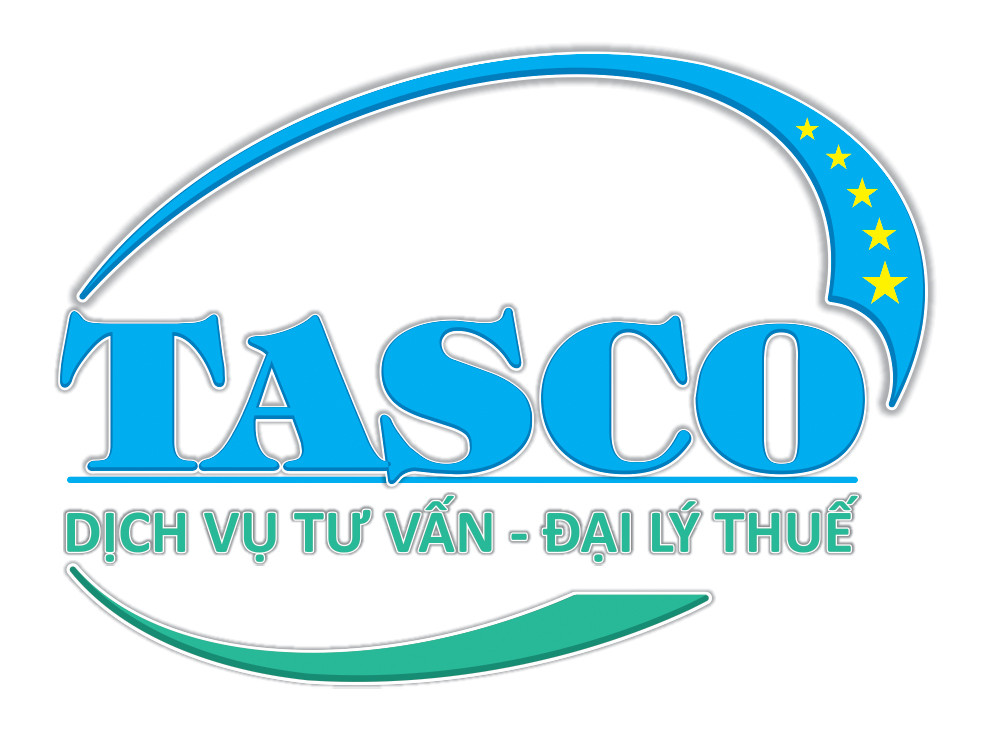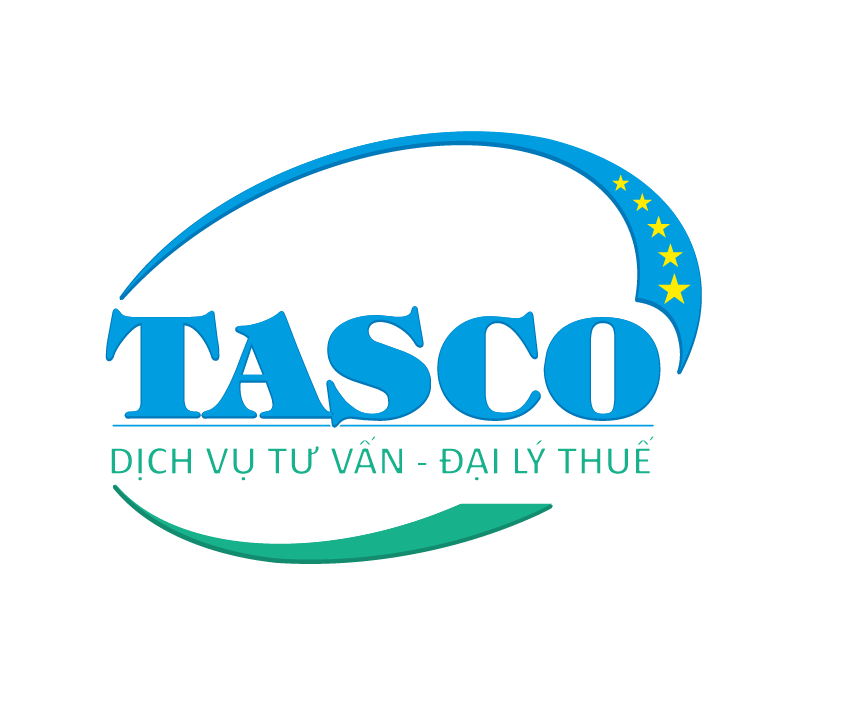Some new points in the Tax Administration Law No. 38/2019/QH14
- 26/07/2021 17:31
On 13/06/2021, at the 7th session of the XIV National Assembly passed the Law on Tax Administration No. 38/2019/QH14 with many important contents in tax administration. The Law on Administration (revision) consists of 17 chapters and 152 articles and takes effect from 01/07/2020 (except for regulations on invoices and electronic documents that take effect from 01/07/2022 in Clause 2, Article 151). TASCO Tax Agent would like information about some notable new points of the Law on Tax Administration No. 38/2019/QH14 in the article below.
✨ Compulsory use of e-invoices from 01/07/2022
- Tax Administration Law No. 38 obliges organizations and individuals to use e-invoices from 01/07/2022, but the Law still encourages agencies, organizations, and individuals to apply regulations on e-invoices before 01/07/2022.
- When selling goods or providing services, the seller must issue an e-invoice to deliver to the buyer in accordance with the standard data format prescribed by the tax authority and must fully record the contents as prescribed by the tax law, accounting law, regardless of the value of each sale of goods or services.
- Business households and individuals pay tax according to the presumptive method and the cases in which revenue can be determined when selling goods and services using e-invoices with tax authority's code when selling goods or providing services.
- For issuing invoices according to each generation (retail invoices): Business households and individuals that do not meet the conditions must use e-invoices with the tax authority's code but need an invoice for delivery. e-invoices issued to customers or in cases where enterprises, economic organizations, or other organizations are accepted by the tax authority to issue e-invoices for delivery to customers, they will be issued e-invoices with tax authority’s code for each time they arise. and must declare and pay tax before the tax authority issues an e-invoice.
✨According to Article 8 – E-transactions in taxation
- Taxpayers, tax authorities, state management agencies, organizations, and individuals that are eligible for electronic transactions in taxations must carry out electronic transactions with tax authorities as prescribed by the Law on Tax Administration and the law on electronic transactions.
- Taxpayers who have carried out electronic transactions in taxation shall not have to use other transaction methods.
- When receiving and returning the results of settlement of tax administrative procedures to taxpayers who make e-transactions, tax authorities must confirm the completion of electronic transactions to taxpayers according to regulations.
- Electronic vouchers used in electronic transactions must have electronic signatures in accordance with the law on electronic transactions.
- Agencies and organizations that have connected electronic information with tax authorities must use electronic documents during transactions with tax authorities; use electronic vouchers to handle administrative procedures for taxpayers, shall not require taxpayers to submit physical documents
📌Tax administration agencies that organize electronic information systems shall have the following responsibilities:
- Provide guidelines and support taxpayers, providers of electronic transactions services in taxation, banks, and relevant organizations to carry out electronic transactions in taxation;
- Develop, manage and operate an electronic tax information receipt and processing system to ensure security, safety, confidentiality, and continuity;
- Develop information sharing systems, provide information on the amount of tax paid to the state budget, on electronic tax payments by taxpayers to relevant agencies, organizations, individuals so as to process administrative procedures for taxpayers as prescribed by law;
- Update, manage, provide information on registration of electronic tax transactions of taxpayers; verify e-transactions between taxpayers collecting organizations so as to implement administration of tax and of revenues of the state budget;
- Process administrative tax procedures electronically;
- In case electronic records of taxpayers are already available in databases of tax authorities, tax authorities and tax officials shall use such data and must not request taxpayers to submit physical tax documents or tax payment records.
✨Regulations on risk management in tax administration are specified in Article 9 of this Law, specifically:
1. Tax authorities shall implement risk management in tax registration, tax declaration, tax payment, tax debts, tax enforcement, tax refund, tax audit, tax inspection, management and use of invoices, records, and other tax administration tasks.
2. Customs authorities shall implement risk management in tax declaration, tax refund, tax cancellation, tax audit, tax inspection, and other tax administration tasks.
3. Implementation of risk management mechanism in tax administration includes collecting, processing information, data related to taxpayers; formulating criteria of tax administration; evaluating regulatory compliance of taxpayers; categorizing levels of risk in tax administration, and organizing the implementation of suitable tax administration measures.
4. Evaluation of regulatory compliance of taxpayers and categorization of levels of risk in tax administration
✨Additional duties, powers, and responsibilities of ministries and branches in tax administration:
- The Ministry of Industry and Trade: Directing and providing guidelines to authorities on sharing and providing related information so as to cooperate with the Ministry of Finance in tax administration of organizations and individuals involved in activities of e-commerce, commercial rights transfer, and related activities.
- The Ministry of Information and Communications: Directing and providing guidelines on the cooperation between competent authorities and tax authorities in tax administration for the provision and use of Internet services, online information, and online games;
- The State Bank of Vietnam: Directing and providing guidelines to credit institutions on sharing and providing information related to banking transactions made by organizations and/or individuals to tax authorities; cooperating with tax authorities in enforcing tax decisions as prescribed in this Law; establishing managing and supervising mechanism for payment transactions, assisting tax administration for cross-border service provision in e-commerce.
✨ Additional rights of taxpayers:
- According to Article 16
1. Receive assistance and guidance when paying tax; provide information and/or documents to fulfill tax liabilities and perform tax rights.
2. Receive documents related to tax liabilities from competent authorities upon inspections, reviews, and/or audits.
3. Request tax authorities to explain tax calculation and/or tax liability imposition; request assessment of quantity, quality, types of imported and/or exported goods.
4. Have confidentiality of information protected, except information that must be provided for competent authorities or tax-related public information as prescribed by law.
5. Enjoy tax incentives and/or tax refunds in accordance with tax regulations; be informed of tax refund schedule, non-refundable tax, and legal bases of non-refundable tax.
6. Sign contracts with an organization providing tax service, tax agents, and/or customs agents.
7. Receive tax decisions, tax audit/inspection records; request explanation for contents of tax handling decisions; having opinions recorded in audit/inspection records; receive audit/inspection conclusion documents and tax decisions after inspections/audits by tax authorities..
8. Receive compensation for damage caused by tax authorities and/or tax officials as prescribed by law.
9. Request tax authorities to confirm the fulfillment of their tax liabilities.
10. File complaints initiate legal proceedings against administrative decisions and/or actions related to their legitimate rights and benefits.
11. Enjoy exemption from penalties for administrative tax offenses, exemption from late payment interest for cases where taxpayers comply with guidelines, and handing decisions of tax authorities and/or state authorities on a determination of their tax liabilities.
12. Report violations committed by tax officials, other organizations, and/or individuals in accordance with provisions on reporting.
13. Access and print all electronic records that taxpayers have sent to web portals of tax authorities as prescribed in this Law and law on e-transactions.
14. Use electronic documents in transactions with tax authorities and relevant organizations and/or individuals.
✨ The time limit for PIT finalization is increased by 1 month:
Previously: According to the provisions of Clause 2, Article 32 of the Law on Tax Administration 2006:
No later than the 90th day from the end of the calendar year or financial year for the annual tax finalization file.
New regulations: At Point b, Clause 2, Article 41 of the Law on Tax Administration 2019:
No later than the last day of the 4th month from the end of the calendar year for personal income tax finalization file of individuals who directly finalize tax.
✨Additional accounting services for small and medium-sized enterprises provided by tax agents:
According to Point c, Clause 1, Article 104 of the Tax Administration Law 2019, tax agents are allowed to provide accounting services for micro-enterprises.
Article 104. Provision of tax procedures services
📌 Services provided by tax agents to taxpayers under contracts include:
- Procedures for tax registration, tax declaration, tax payment, tax finalization, application for tax exemption, tax reduction, tax refund, and other tax procedures on behalf of taxpayers;
- Tax consulting services;
- Accounting services for micro-enterprises as prescribed in Article 150 of this Law. Micro-enterprises are defined according to the provisions of the law on supporting small and medium-sized enterprises.
✨ About the deadline for granting tax registration certificates
Previously: According to Article 26 of the Law on Tax Administration No. 78/2006/QH11:
The time limit is 10 days from the date of receipt of a valid tax registration document. In case of loss or damage, the tax authority shall re-issue it within 05 days from the date of receipt of the taxpayer's request.
Current: In Article 34 of the Law on Tax Administration No. 38/2019/QH14:
The time limit is 03 days from the date of receipt of complete tax registration documents of taxpayers. If the application is lost, torn, or burned, the tax authority shall re-issue it within 2 days from the date of receipt of a complete document.
⭐ New regulations added in the Law on Tax Administration No. 38/2019/QH14 will create conditions and foundations for tax administration in a modernized environment, and access to international standards, and regulations; and create more favorable conditions for taxpayers, tax administration agencies strictly perform their rights and obligations as prescribed by law; actively fight corruption and negativity in taxation.
TASCO Tax Agent is one of the tax agents providing tax procedures and tax accounting services, always promptly updating new regulations related to tax and corporate law. If you want to find a reputable company to entrust accounting tasks, save costs and time for your business, please contact TASCO Tax Agent immediately, we are always ready to support you 24/ 7!
TASCO - Tax agent responsible for all service
TASCO - Give trust - get value
Please contact TASCO for a free consultation:
Hotline: 086.486.2446 - 0975.08.68 (zalo)
Website: dailythuetasco.com hoặc dichvutuvandoanhnghiep.vn





Comment
main.comment_read_more